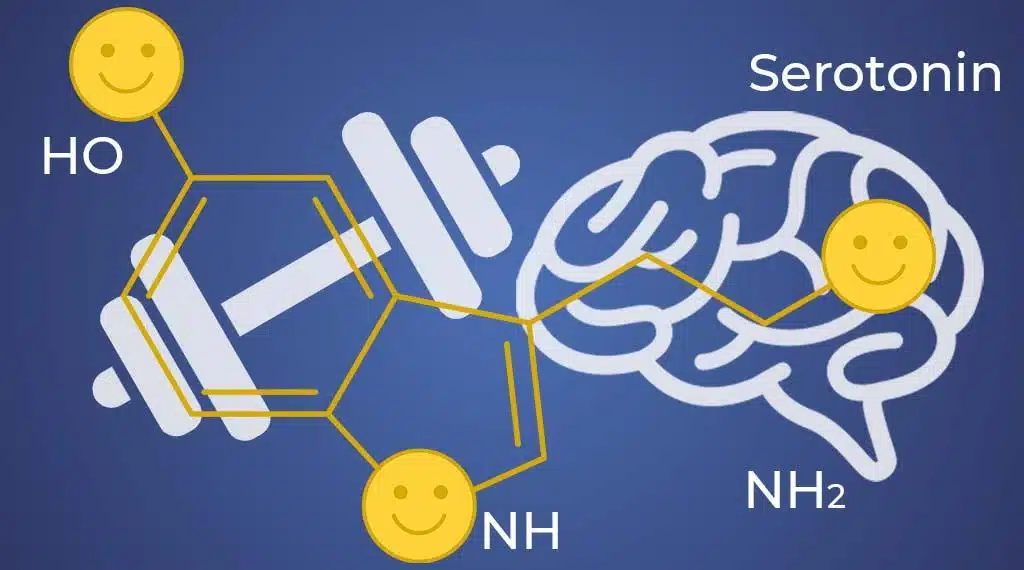Teen sports can have a significant positive impact on teen well-being. Not only do sports reduce stress, they also give teens ways to bond and practice collaboration, while reaping the physical and mental health benefits of exercising.
Elite athletes often tell personal stories of how high-level competition led to eating disorders or other mental health conditions. However, for high school student athletes and for college athletes, teen sports can boost self-esteem, build teamwork skills, and help teens and young adults build a close community of peers and supportive adults.
10 Scientifically Validated Mental Benefits of Sports
Scientists have been exploring the link between exercise and mood for more than 100 years. As a result, they have produced a large body of research on physical activity and mental health, including the link between sports and mental health. Both biological and psychological factors come into play.
Here are 10 mental benefits of sports validated by research:
- Exercise positively impacts levels of serotonin, a chemical that helps regulate mental health, and stimulates the neurotransmitter norepinephrine, which improves mood.
- Physical activity releases endorphins, the body’s natural “happy chemicals,” and reduces levels of the stress hormone cortisol.
- Sports are associated with lower rates of stress, anxiety, depression, and suicidal behavior.
- Participation in team sports reduces the risk of teen substance abuse and other reckless behaviors.
- Team sports enhance resilience, empathy, confidence and empowerment.
- They have also been shown to increase executive functioning, creativity, cognitive development, and self-regulation.
- Improved teamwork and social responsibility are additional benefits of team sports for mental health.
- The more time spent being physically active, the less time a teen spends on social media, which is proven to lower adolescent well-being.
- Teen sports, as well as other outdoor activities, get teens outside so they can experience the benefits of time in nature.
- Sleep improves when teens are physically active—which is important because sleep is essential for maintaining mental health.
In fact, research shows that sports and other types of physical activity can be equally as effective as medication in improving teen mental health and happiness levels—while boosting physical health.

Teen Depression and Physical Activity
Let’s take a closer look at the research on teen sports and mental health in the area of teen depression. Most recently, a 2021 study involving data from 70,000 high school students found a direct link between sport and mental health. Moreover, research shows that team sports may be more supportive for athletes’ mental health than individual sports: One study found that young athletes in individual sports were almost twice as likely to report symptoms of depression (13 percent vs. 7 percent).
Another study showed that physical activity can be as effective as antidepressants. Researchers divided participants with depression into three groups. One group took part in an exercise program, one group took an antidepressant, and third group exercised and also took medication. After 16 weeks, depression had eased in all three groups. However, a follow-up study, done six months later, found that the effects of exercise actually lasted longer than those of antidepressants.
To Ward Off Anxiety, Get Moving
In addition to protecting teens from depression, physical exercise such as team sports has been shown to decrease symptoms of anxiety. In a study of college students, those who were physically active reported higher levels of excitement and enthusiasm as compared to those who were less active. In another study, researchers found that people who got regular vigorous exercise were 25 percent less likely to develop an anxiety disorder over the next five years.
“Single sessions of activity reduce anxiety, improve mood, and raise feelings of energy that last for several hours. Long-term participation can significantly improve conditions such as clinical anxiety and depression to a degree that rivals medication, both in adults and adolescents.”
—Jack Raglin, PhD, Department of Kinesiology at Indiana University-Bloomington
How Exercise Supports Recovery from Substance Use Disorder
Not only do sports reduce stress and keep anxiety and depression at bay, research shows that regular exercise can help people recover from substance abuse and stay in recovery long term. Scientists are still looking closely at the neurobiological underpinnings of this discovery. Moreover, they are examining its ramifications for treatment. Essentially, physical activity, such as teen athletics, provides a healthy reward for the brain.
Specifically, addictive drugs stimulate the brain’s reward system. They do this by catalyzing a powerful surge of the pleasure hormone dopamine. Finding healthy ways to increase dopamine is key to successful recovery. This is especially true in the early days of recovery, when withdrawal cravings can be intense.
Evidence shows that exercise can be used as an alternative reward for the body and brain. As a result, staying sober is easier. Teen sports can pave the way.
The Long-Term Mental Benefits of Sports
In addition to the immediate mental benefits of sports, playing team sports in high school appears to predict better mental health later in life. A 2019 study tested this theory on close to 10,000 participants, about half of whom experienced childhood trauma. They found that individuals with a history of trauma had a significantly lower chance of being diagnosed with depression or anxiety if they had participated in team sports as adolescents.
Another study, published in the Journal of Adolescent Health, found that students who play team sports in grades 8 through 12 have less stress and better mental health as young adults. In the study, 850 students from 10 Canadian schools were surveyed about their participation in school sports, such as basketball, soccer, track and field, wrestling, and gymnastics.
Three years after graduation, researchers followed up with the participants. They found that youth who were involved in school sports had lower depression symptoms, lower perceived stress, and better self-rated mental health than those who did not play sports at all. The study authors concluded that playing high school sports protected young people from poor mental health four years later.
According to study co-author Catherine Sabiston, PhD, of the University of Toronto, “Team sports offer a heightened emphasis on group goals, social support, and sense of connection that provide more opportunity for learning adaptive coping strategies that can be essential for long-term mental health.”

When Teen Treatment Is Needed
Teen sports offer multiple benefits for mental health. Ultimately, supporting teens to play sports will give them a strong foundation for physical and mental well-being.
However, the mental benefits of sports may not be enough support for every adolescent. If physical activity and other lifestyle changes aren’t helping with symptoms of depression, anxiety, or other mental health issues, it’s essential to seek treatment before the problem escalates.
At Newport Academy, our specialized care for adolescents includes evidence-based experiential modalities that incorporate the mental benefits of sports—such as Adventure Therapy, Mixed Martial Arts, and physical fitness activities. In addition, individual and family therapy sessions support teens to heal the trauma and attachment wounds that catalyze depression, anxiety, substance abuse, and other co-occurring disorders.
Contact us today to learn more about how we guide teens and families to sustainable healing.
Key Takeaways
- Studies show that exercise can be as effective as medication in improving teen mental health and happiness levels.
- Physical activity raises the level of natural chemicals in the brain that affect emotional regulation and mood.
- Team sports improve interpersonal resources such as empathy, confidence, and responsibility.
- Indirect benefits of physical activity can include time spent outdoors in nature and better sleep, which both protect against developing mental health illness.
- Exercise helps a teen avoid or recover from substance use disorder because it stimulates similar parts of the brain’s reward system.
Frequently Asked Questions About Sports and Teen Mental Health
Sports improve mental health by affecting levels of naturally occurring brain chemicals that regulate mood and emotions. Physical activity also reduces the effects of stress and promotes sleep, both known factors in maintaining good mental health. Moreover, participation in team sports develops personal qualities and social skills that support a young person’s sense of well-being.
Studies show that teens who participate in team sports are less likely to experience mental health challenges later in life than those who participate in individual sports. However, any form of activity is better for mental health than no activity.
Physical exercise increases blood flow to the brain, stimulating the growth of new neurons and flushing away brain chemicals associated with stress. Moreover, it prompts the body to release chemicals associated with feeling good.
Sources:
J Clinical Sports Psychol. 2021: 15(3): 268–287.
J Sports Science Med. 2019 Aug 1;18(3):490–496.
JAMA Pediatr. 2019; 173(7): 681–688.
Adolesc Health. 2014 Nov; 55(5): 640–4.






